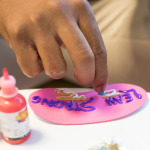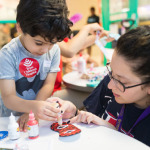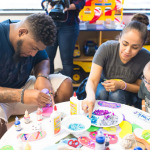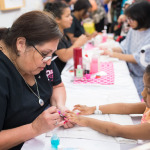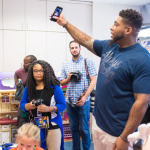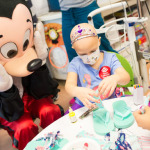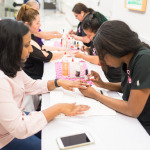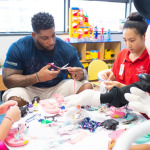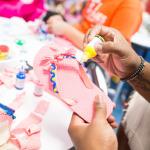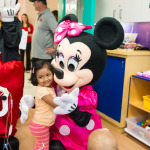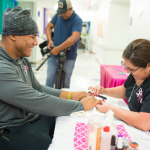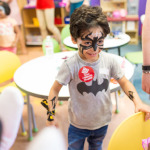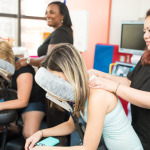
During his annual Department of Surgery year in review, Surgeon-in-Chief Dr. Charles D. Fraser Jr. proclaimed that anything can be done if you work together toward a common goal.
“It isn’t enough for the muscles of a crew to work in unison,” Fraser quoted from The Boys In The Boat, a book he read and referenced several times during his talk on July 22 in the packed Texas Children’s Hospital auditorium. “Their hearts and minds must also be as one.”
Teamwork, Fraser said, is the secret to the success of the Department of Surgery, which is composed of 600 employees and nine subspecialties with support from many other teams that are dedicated to caring for and improving the health of children through patient care, education and research.
The department’s team has grown exponentially during the past few years reaching 94 surgeons and 94 advanced practice providers in 2016. Many of those clinical staff members are in leadership roles, have academic responsibilities at Baylor College of Medicine and have earned awards for their service. The department also has the support of one of the largest pediatric anesthesiology departments in the county and dedicated perioperative services.
Two of the department’s newest leaders – Chief of Neurosurgery Dr. Howard Weiner and Chief of Otolaryngology Dr. Ellis Arjmand – took the podium during Fraser’s presentation to talk about their vision for the divisions and accomplishments to date.
Weiner, who started at Texas Children’s Hospital in May, told the audience he joined the team for various reasons including the fact that his core values and leadership style – which encompasses outstanding surgical care, attentive service, quality and integrity, innovation and investigation – mirrors that of the Department of Surgery’s.
“When I came to visit here, I was blown away by the vision to be the national and international destination for the most world class innovative, high-quality, attentive neurologic care for children,” Weiner said. “In addition, the leadership here demonstrates an unselfish service to the team and believes group accomplishments and success are primary.”
Weiner, whose clinic interests include medically refractory epilepsy and tuberous sclerosis complex, said he hopes to use his own success to empower and support an outstanding team.
When Arjmand took the stage, he outlined the tremendous growth of his team and their proven ability to widen the scope of otolaryngological services to the greater Houston area. With more than 20 otolaryngologists, seven advanced practice providers and three fellows, members of the otolaryngology team have increased the number of outpatient visits 74 percent since 2013 to more than 35,000.
“We have made maximum use of the Texas Children’s community to reach people throughout the greater Houston area,” Arjmand said, adding that Texas Children’s has tremendous leadership and a pool of talent that is seizing opportunities each day to better serve our current and future patients.
Fraser agreed and said he couldn’t possibly list all of the department’s accomplishments but highlighted the following:
- Outpatient visits increased 11 percent compared with last year totaling 149,937.
- Surgical cases increased 7 percent during the same time frame to 30,696.
- Texas Children’s Transplant Services was named the most active pediatric program in the country in 2015.
- U.S. News & World Report rankings were strong with cardiology and heart surgery as well as neurology and neurosurgery coming in at No. 2, urology at No. 5, gastroenterology and GI surgery at No. 6 and orthopedics at No. 21.
- The hospital was verified as a Level I Children’s Surgery Center by the American College of Surgeons.
- Department members gave almost 300 presentations, published almost 250 papers, wrote 18 book chapters and edited and/or wrote eight books.
“We have a lot going on,” Fraser said. “You are doing so much every single day, and for that I thank you.”
The future, Fraser predicted, will be more of the same with several promising research programs in the works, surgical seed grants awarded, expanded service areas, innovation opportunities and more.
“We have a lot to look forward to,” he said. “The future of the Department of Surgery at Texas Children’s is very bright.”
To watch the 2016 year-in-review presentation, click here (link will redirect to Connect).







